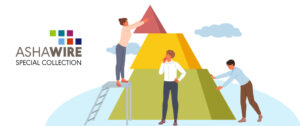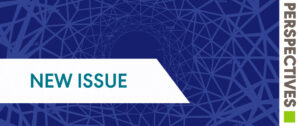As an ASHA member, you’re so much more than a service provider. You may find yourself serving as an advocate or even providing emotional counseling for people with communication difficulties.
As part of our recognition of National Speech-Language-Hearing Month, this week we’re highlighting articles on topics probably not covered in your coursework. Read below to learn more about working with caregivers—and confronting the stigmas that the people you work with face every day.
Challenges and Opportunities in Caregiving
Unlocking the Potential of Pediatric Virtual Care: An e-Delphi Study on a Virtual Caregiver Participation Framework in Audiology: Pediatric telehealth can be beneficial to families with children who are deaf or hard of hearing, but successful care is only possible with caregiver buy-in. The authors of this AJA article provide a framework for caregiver participation in pediatric audiology virtual care.
Mandarin Chinese Translation and Cultural Adaptation of the “Caregiver Analysis of Reported Experiences With Swallowing Disorders” Screening Tool: Understanding caregivers’ burdens is crucial to ensuring that people with swallowing difficulties receive proper care at home. Learn about the successful translation and cultural adaptation of a caregiver analysis tool into Mandarin Chinese.
Examining Factors That Contribute to Poststroke Depression Within the Family Caregiver and Care Recipient Dyadic Experience: After a stroke, individuals may experience biochemical changes in the brain that, when combined with residual physical and cognitive challenges, can result in post-stroke depression. Read about how family education, preparedness, and coping strategies can help family caregivers combat and manage post-stroke depression.
Stigmas and Self-Stigmas
Evaluation of an Integrated Fluency and Acceptance and Commitment Therapy Intervention for Adolescents and Adults Who Stutter: Traditionally, stuttering treatment has focused on fluency, with the psychosocial aspects of stuttering not being addressed in speech-language pathology. A new program has the potential to promote self-efficacy and address the psychosocial impacts of stuttering while also contributing to speech fluency gains.
Social–Emotional Functioning of Children With Different Hearing Status and Diverse Cultural Background: Children who are deaf or hard of hearing can face challenges in peer interactions, and these are only amplified when the child is from a diverse cultural background. This article underscores the need for interventions that—when used with a child who has hearing difficulties—consider the child’s culture.
Improving Cognitive Empathy Through Traumatic Brain Injury Experiential Learning: A Novel Mixed Methods Approach for Speech-Language Pathology Graduate Education: You may have to confront your own expectations and bias when working with certain individuals, such as people with traumatic brain injury. Read about a training session designed to increase cognitive empathy in students who are majoring in communication sciences and disorders.
National Speech-Language-Hearing Month Rolls On
Looking for more on these topics? The National Speech-Language-Hearing Month home page contains information that you can share on stigmas and caregivers—visit the website to access downloadable images, handouts, and press releases in English and Spanish.
We’re more than halfway through National Speech-Language-Hearing Month, but there’s still plenty of time left! Don’t miss out on the opportunities to educate your community about all of the topics covered during this year’s National Speech-Language-Hearing Month. You can even sign up for their social media challenge: Every time you share or post about this important ASHA awareness campaign, you earn points—which can ultimately win you some prizes (including an Amazon gift card)!







